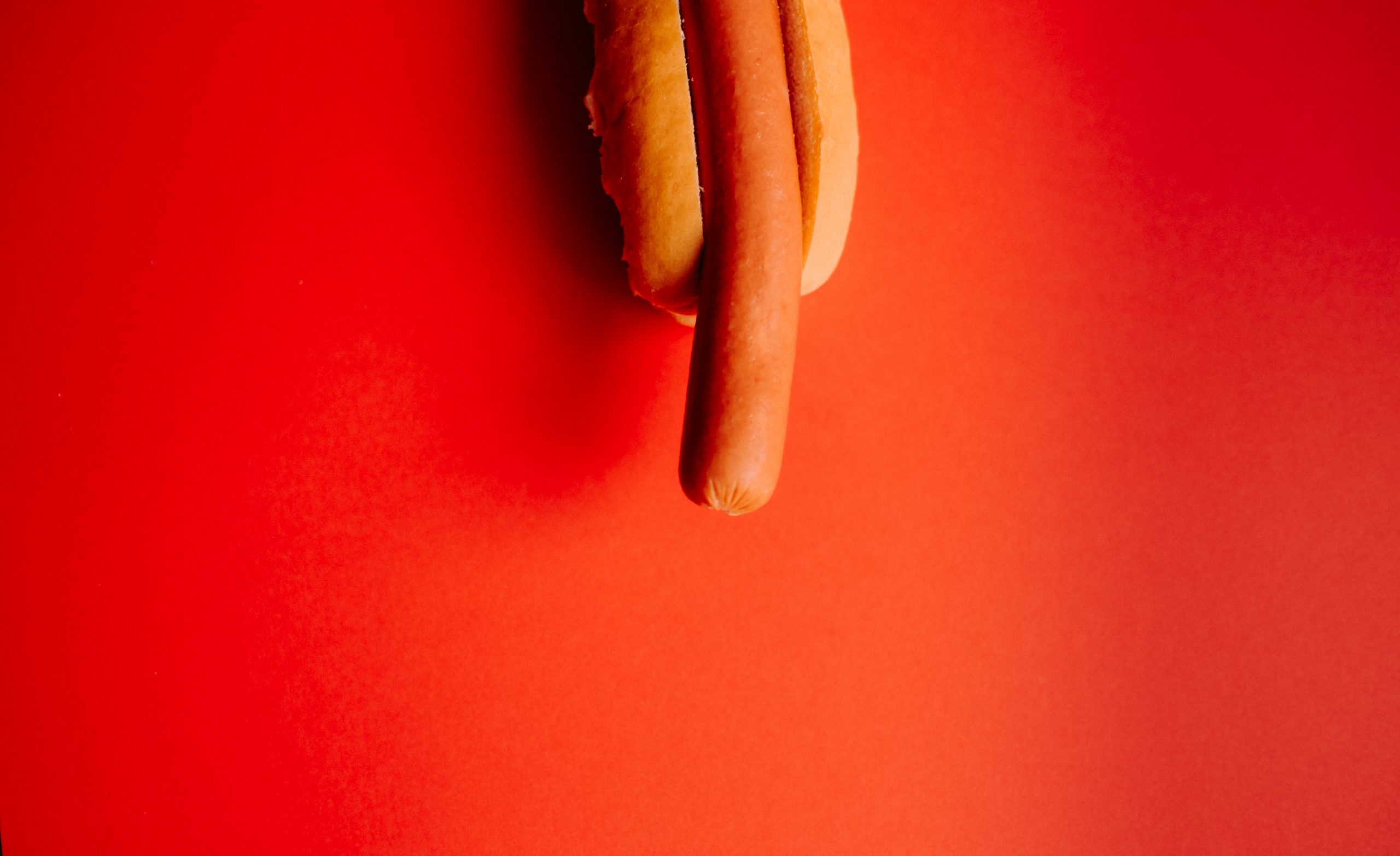This is the second in a series of blogs about erectile dysfunction (ED) – having difficulties getting or maintaining an erection.
Penises are unreliable! Nearly every man has erection issues at some time or another – it’s NORMAL!
So, please don’t skip this if you’re a man.
This blog talks about what happens to your body when you’re aroused and get an erection. Even if you aren’t having any problems getting or staying hard, you’ll be far less likely to freak out when it does happen (and it always does, at some point) if you’re well-informed.
Get a grip!
Man up!
Stop stressing! Relax and it’ll all go away.
If you’ve been having problems with your erections, I bet this is the type of thing you’ve been beating yourself up with.
A lot of men think that erectile dysfunction (ED) is mostly caused by a crisis of confidence or somehow ‘going off sex’. In other words, something you should be able to fix on your own.
That’s simply isn’t true.
There can be psychological causes, but the most common cause of ED is usually physical.
To understand why that might be happening to you, you need to understand the male arousal process. What causes an erection in the first place? What happens to your body when you become turned on?
Well, while your brain zooms in on the pleasurable sensations the thought of sex produces, your body’s working like mad to create all the physiological changes necessary for arousal and orgasm.
What happens to men when they become aroused?
Someone or something (watching porn, perhaps?) makes you feel like having sex. This is desire. When you feel it, the brain alerts your penis by sending a signal down the spinal cord, instructing it to start getting ready for sex by giving you an erection.
Desire and erections are helped along greatly by direct stimulation – either of your penis or other erogenous zones.
These are areas of the body that have heightened sensitivity, mainly because there’s a high concentration of nerve endings there.
Nipples and your genitals have lots of them: that’s why they feel good when they’re touched. (Though we all have other, less obvious, erogenous zones, like our necks or buttocks.)
Women start their arousal process differently than men: men are more likely to experience spontaneous desire (it’s triggered by something, anything sometimes – you feel like sex and then search for it) while women experience responsive desire (they feel like sex once they’re being stimulated sexually).
Don’t confuse erection problems with low desire: they are two very different things
Low desire means you don’t feel like having sex. This could be because you’re not feeling well, you’re stressed, you don’t find your partner sexually attractive – or even like them. It could also be because your testosterone levels are low.
Erection problems mean you could be desperate to have sex, all systems go elsewhere – but your penis seems to have other ideas and won’t get hard.
Or just not as hard as it used to be.
Or you’re fine when you’re on your own but your erection disappears the minute you penetrate.
What causes an erection?
Gloriously magnificent as they are, an erection is simply a penis that’s full of blood.
During the excitement phase of arousal, blood flows into the penis, filling two spongy, cylindrical chambers inside it, making it swell. This makes a tough outer sheath become tighter, trapping blood within the penis.
You’re in the plateau phase when the head of the penis widens and the blood vessels in and around the penis fill with more blood, deepening the colour and making the testicles swell by half their size.
During the orgasmic phase blood flow increases to the point where the body can no longer tolerate any further pressure in the genital area. The seminal vesicle is also full and semen begins to flow upward, toward the head of the penis.
This moment is called ejaculatory inevitability: which means exactly what it says. Your mother could walk in and you’d still be powerless to stop. The penis contracts once every .8 of a second, the semen begins to spurt out of the tip and orgasm happens. (Contrary to popular belief, orgasm and ejaculation are two separate processes. Ejaculation is the physical part; orgasm is the feeling.)
During the resolution phase the body returns to ‘normal’, as it was before stimulation. The blood drains from the genitals, the heart rate, blood pressure and breathing decrease.
In other words, a good blood flow is essential for a strong, firm erection – which is why if you are having erection problems, issues with blood flow are often to blame.
Unhappy owners make for unhappy penises
Sometimes, though, ED is caused by psychological problems,
If you’re having issues in your relationship and can’t bear the sight of your partner, let alone want to have sex with them, don’t blame your penis if he doesn’t want to come out and play either!
You’ve probably heard the term ‘performance anxiety’: men getting over anxious about not being good enough in bed to the point where their erection dies.
This can cause a confidence crisis – one that’s nearly always solved by an understanding partner and by taking the focus off intercourse-based sex for a while.
More often, repetitive erection problems have a physical cause – especially if you’re over 40.
Here’s some other factors that affect erection quality
You’re tired, you’ve drunk too much or been using recreational drugs.
You smoke.
You’re overweight and don’t exercise.
You’re stressed or exhausted.
You’re taking prescription medication which has an unfortunate side-effect (anti-depressants often affect erections but not all do, so ask for an alternative)
You have a medical condition like diabetes or high blood pressure
A lot of these factors cause the small blood vessels that supply the penis with blood during an erection to become blocked or narrow.
If this is causing your problem, don’t panic. It’s actually easily fixed (more on that in a bit).
How do I know whether my ED is physical or psychological?
How do you tell which camp you fall into if you’re experiencing ED: psychological or physical?
First, find out whether you get an erection during your sleep, when you aren’t plagued by anxious thoughts.
The traditional way to test this to attach a ring of postage stamps around the base of your penis when going to bed and check to see if it’s broken when you wake up.
This will mean you’ve had a sleep erection and the problem isn’t physical.
Needless to say, this method is fraught with problems (stamps falling off, accidentally knocking them off, forgetting they’re there when you go for a pee, a partner who can’t stop laughing…).
A simpler way to figure it out is to answer this question.
Can you get an early morning erection or achieve one when you’re masturbating on your own?
If you can, the cause probably isn’t physical. If the answer is no, and no, it probably is.
(Remember, also, that you can orgasm and ejaculate during solo sex without getting an erection.)
Finding the solution for you
The solution to your erection difficulty depends on what you think is causing it.
If it’s lifestyle, you need to make some changes: start exercising, change your diet, work to get rid of bad habits.
If you’re having relationship issues, have a good, long talk to your partner to sort things out. This weekend. The longer you leave problems to fester, the harder they are to solve.
If it feels way too difficult to solve just the two of you, get help. That might be talking with someone close to the two of you or seeing a therapist or counsellor for a few sessions. (Find a good one at itsgoodtotalk.co.uk or relate.org.uk.)
If you think the problem is physical, panic not!
Seeing a doctor or a pharmacist is the next step.
Some men feel embarrassed seeing their doctor straight up and opt to see a pharmacist first.
The pharmacist won’t give you a physical examination or ask personal questions about your sex life, just ask a few basic questions about your health. (They’ll also tell you if you do have any health issues that need checking out. This is because ED can be an early warning sign of other conditions.)
They will also talk you through the various options available to you – the little blue pill is one of them but there are many others. Penis pumps, for instance, can revive an erection that’s as tired as its owner: they oxygenate the penis which can improve the quality of your erection.
If you don’t want to see your GP because you’re embarrassed, ask to see another at the clinic. (Though I’d love you to instead accept that there is absolutely nothing to be ashamed of!)
If your doctor thinks it might be part low desire and part ED, you might be advised to take a course of testosterone to lift your libido.
The most important thing to do is this: talk to someone. Your partner. Your pharmacist. Your doctor. Your best friend.
ED isn’t something you need to face alone. There’s load of help and solutions out there.
*A version of this blog originally appeared in The Telegraph





